How Dangote Refinery Ruined The Economy Of The Ancient Town Of Lekki

Lekki was the stopover for black slaves in transit to Europe, then the prison home of Obafemi Awolowo. Now, it struggles for breath under Dangote Refinery.
Fishermen sat in groups, tending their nets. The sea beside them rolled into a hill and then simmered like a pacified child. Some of the men had started the day’s hunt since 2am when surface temperature of the sea was yet very cool and fishes had not gone deep down. Still, the catch was few. A man would tell me how all he had got from about 11hours’ toil could not sell for more than N1,000. Everyone wore a long face, even the women who sorted fishes on the shore.
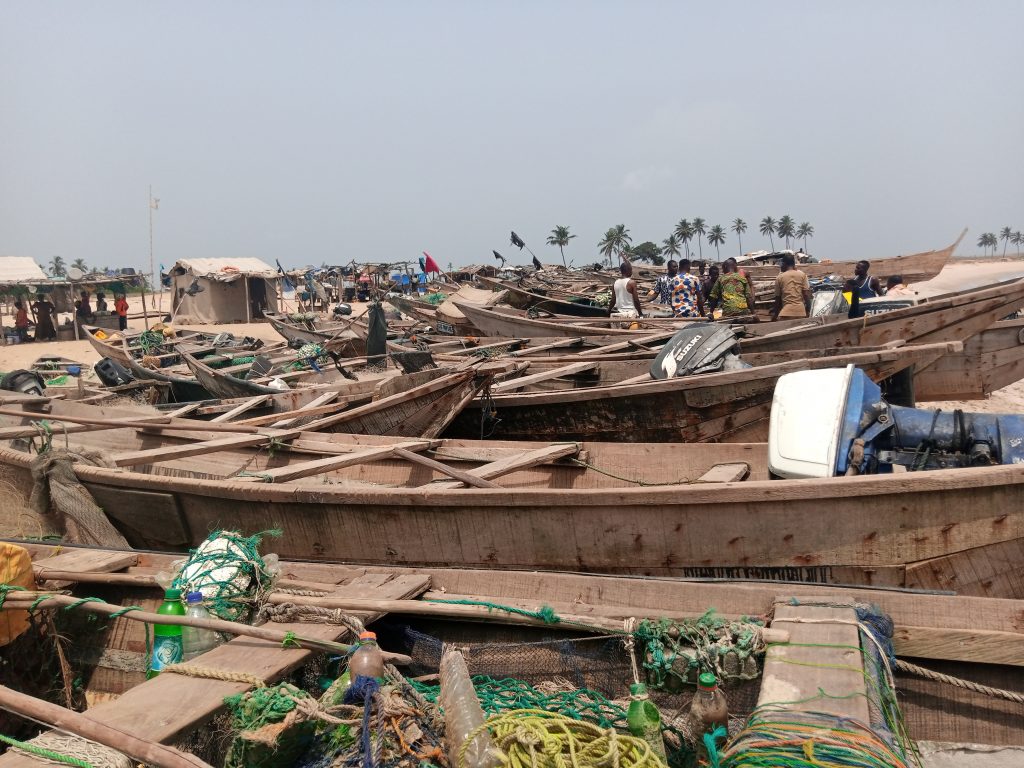
Lekki, a small town in the Ibeju/Lekki Local Government Area of Lagos, is located between the Lagoon and the Atlantic Ocean. The name was said to have been derived from a Portuguese slave merchant, Mr. Lecqui, who lived in the town in the mid-19th century. Mr Lecqui was the representative of Regis Aine, a French slave trading company making salt from the sea and transporting it on the same boat with black slaves to Europe.
Most of Lekki residents are fishermen and fish traders. They harvest tilapia and cat fishes from the lagoon; and then croaka, Chinese fish, kuta and shark from the sea. Although the varieties from the sea are of higher economic value, the greatest asset of the people is not the sea itself but the proximity of the town to Lagos, the economic nerve of Nigeria. The higher the quantity of fishes that gets to Lagos, the higher the amount of money that returns with traders to Lekki.
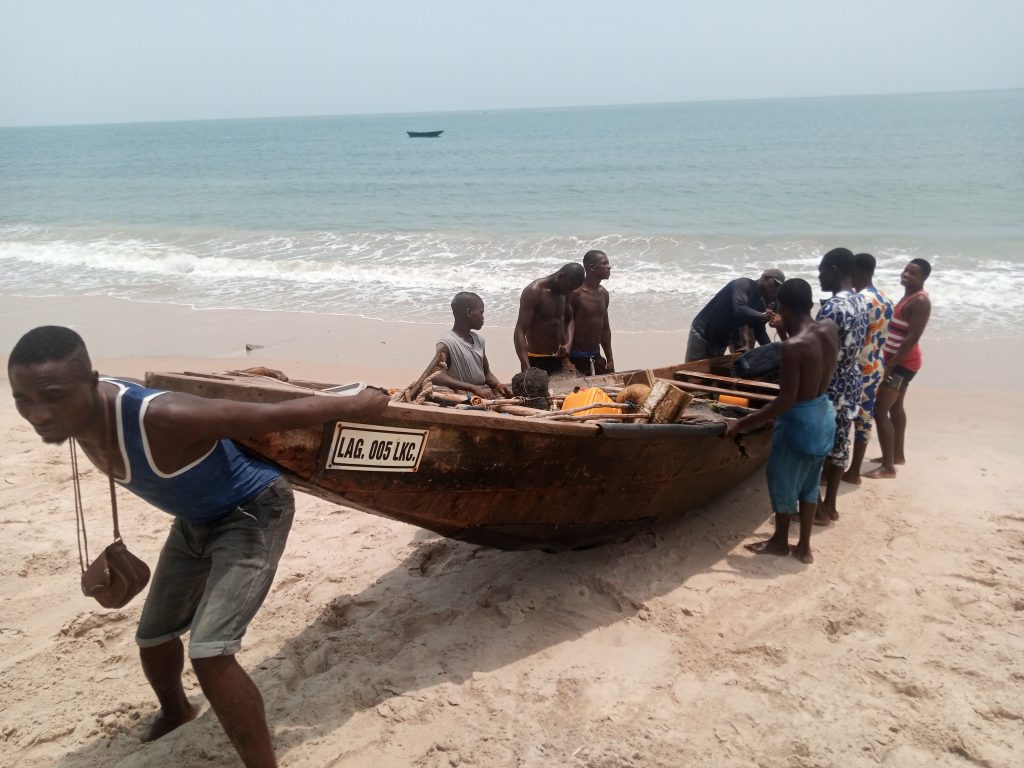
Chief Obafemi Awolowo, one of the founding fathers of Nigeria and first premier of the defunct Western Region, had testified to the economic potential of Lekki while staying there in the early 1960s. He had been detained in the house built by Mr. Lecqui, during his trial on charges of treasonable felony. Awolowo reportedly informed Lekki residents of the huge prospects of their town, giving its water resources and closeness to Lagos. Mr Lecqui had reportedly died of malaria several decades before Awolowo stayed in his house. His tomb stands directly in front of the bungalow that now houses Awolowo’s relics and is known as Obafemi Awolowo Museum.
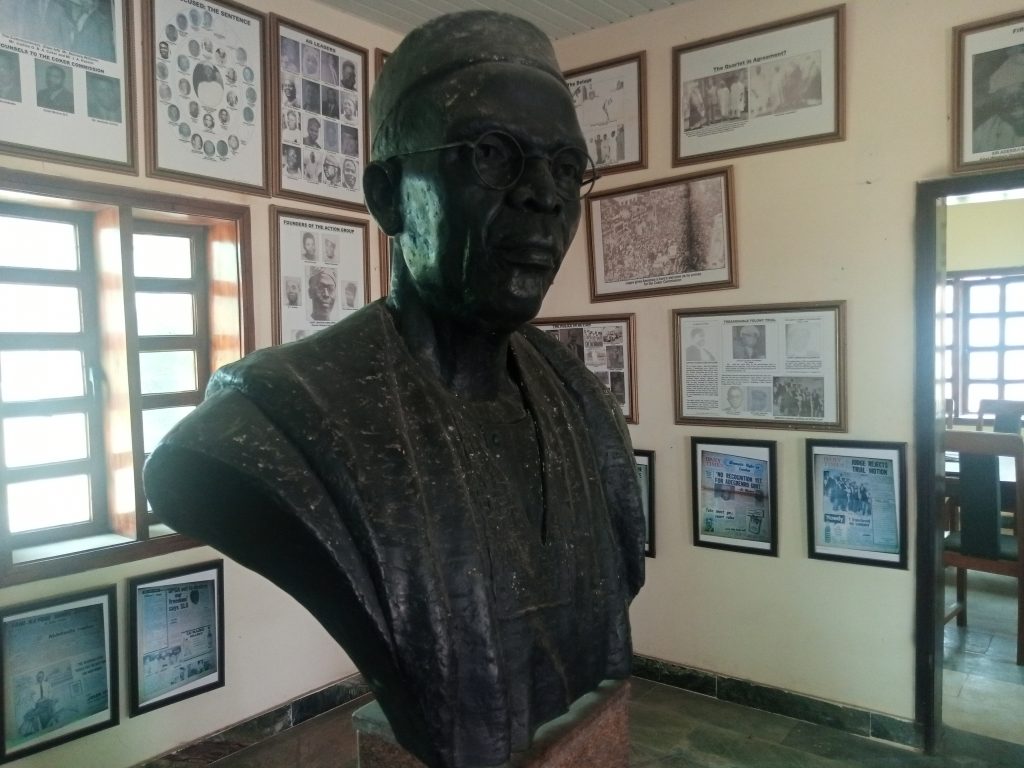
Life used to be good at the Lekki sea shore. Fishermen used to laugh out loud and gift visitors enough fishes to last them a whole month. Things, however, started taking a downward turn when Dangote Group began a refinery project in the area. Dangote Refinery is a $12 billion project under development at the Lekki Free Zone area of Lagos State. The refinery, which is expected to be the largest in Africa upon completion, will produce 650,000 barrels of oil per day.
Exposed!! Popular Abuja doctor revealed how men can naturally and permanently cure poor erection, quick ejaculation, small and shameful manhood without side effects. Even if you are hypertensive or diabetic . Stop the use of hard drugs for sex!! It kills!
The project includes a private seaport and a fertilizer plant. The port, which received its first ship call in 2018, was established to receive heavy equipment for the construction of the refinery. It is located in Lekki, and a stone-throw away from Lekki fishing camp.
EVERYTHING’S GOING SOUTH
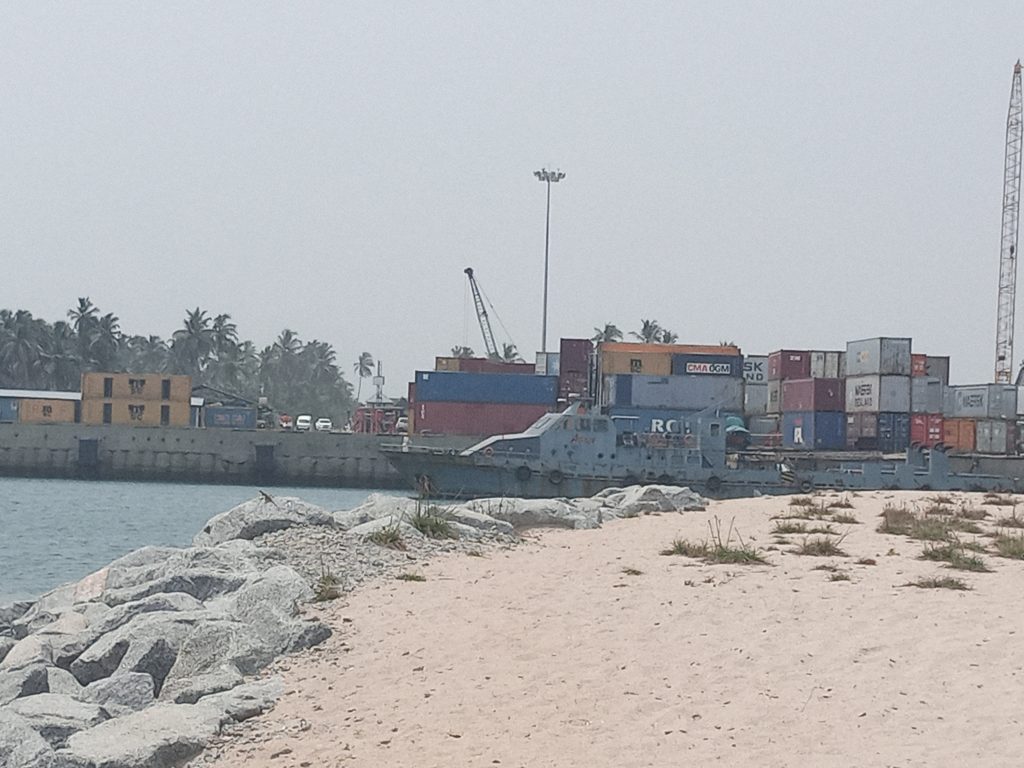
“The moment Dangote started work, everything went south,” Adam Raman told me. “They poured chemicals into the water and the fishes ran away.”
Raman, 39, started hunting with his parents when he was 18. He had seen people build houses and send their kids to good schools with the proceeds from their fishing adventures. He had also watched the situation at the shore worsen with every block added to Dangote Sea Port, and by extension, the refinery complex. According to him, the sea which used to be the ‘people’s company’ now finds it hard to put food on their table.
“What kind of school can a man who made N100,000 in a single day not send his kids to? But not anymore; we barely have something to eat these days,” he lamented.
‘THERE WILL BE CRISIS… SERIOUS CONFLICT’
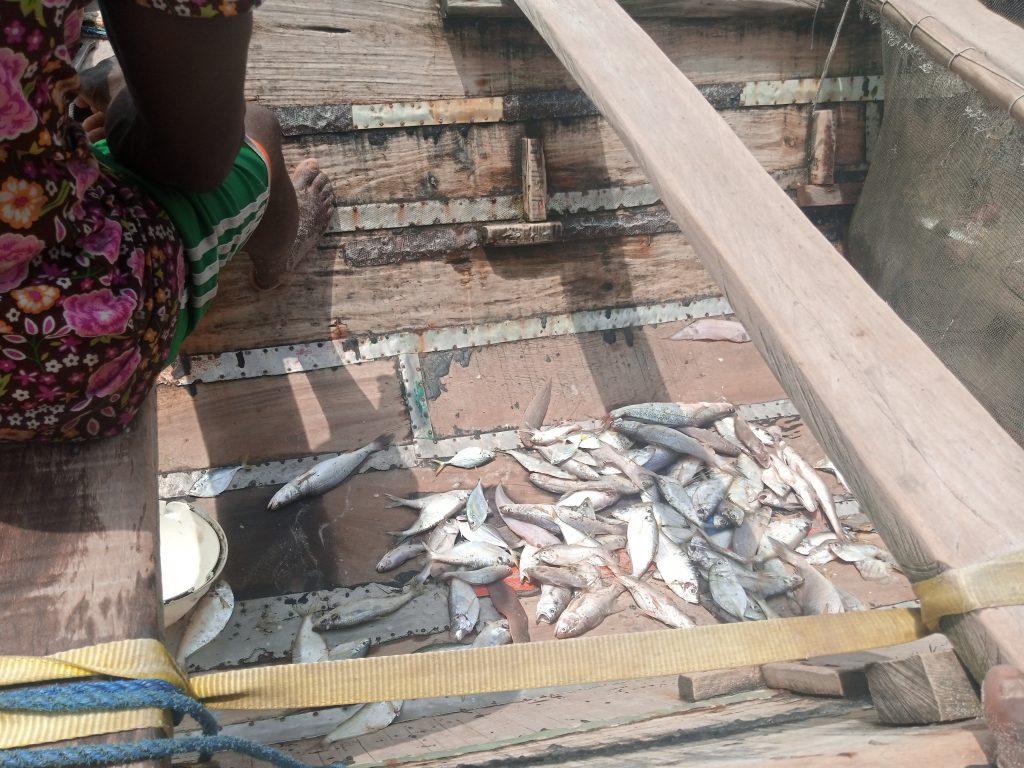
A report of the United Nations Economic and Social Commission for the Pacific (UNESCAP) construction activities revealed that a seaport may displace fishery resources. Dredging, for instance, removes bottom biodata while dredging materials cover bottom habitat.
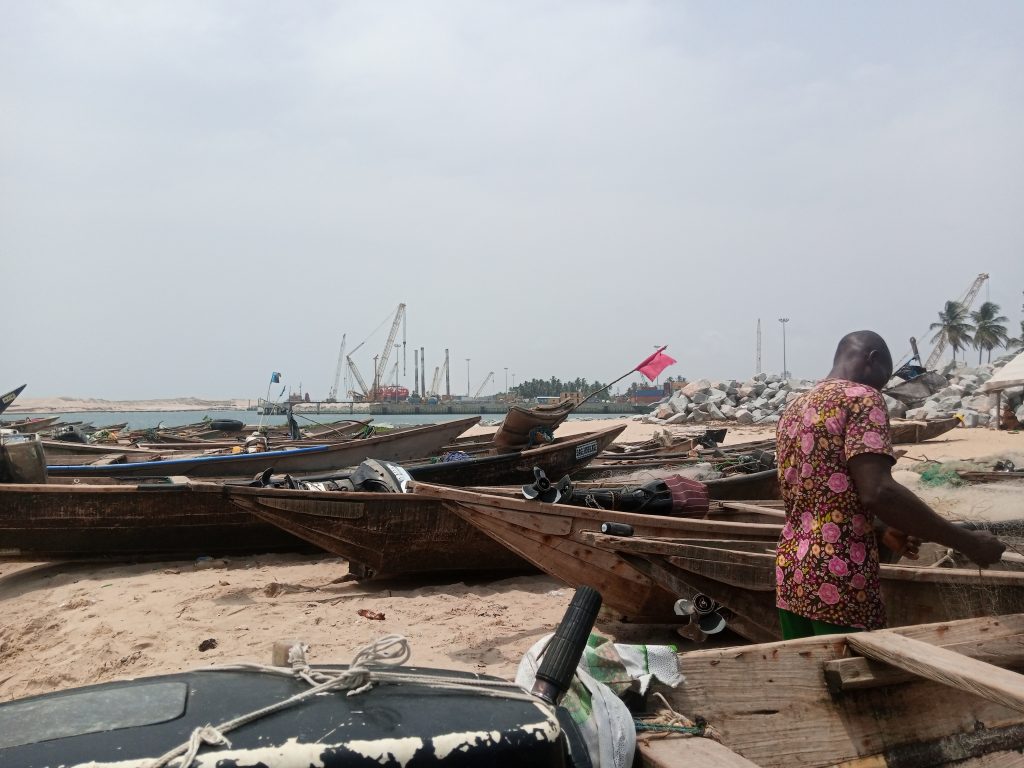
“There will be crisis. There will be serious conflict in this town if the hardship continues,” another fisherman said.
“The common man is suffering. Dangote, on the other hand, is not making attempts to alleviate the impacts of his activities on us, and we are ready to fight for our rights. By the time we start killing their workers and soldiers, they will understand how much havoc they’ve done to our economy.”
THE YOUNG MAN WHO DROPPED OUT OF SCHOOL
In his own account, Samson Olajide said he dropped out of school after sea tide destroyed his father’s boat. Sea tide reportedly became stronger on the coast as a result of Dangote’s construction activities on the sea. Samson was a second year English student at Michael Otedola College of Education when the incident happened, and since he depended on the proceeds of his father’s business for tuition, education had to give.
A boat in Lekki is a locally made wooden canoe fitted with an outboard motor. According to Samson, getting one might cost over N3million. While an outboard engine costs as much as N2.5million depending on the strength, a fishing boat is equipped with about four expensive nets — one for catching crayfishes and the other three four different sizes of fishes.
“My father was not the only one so affected,” Samson said. “The damage done was so much. Some people had two boats, and the tide destroyed both.”
Effects of seaport construction on tidal range are a common knowledge among engineers and oceanographers. Activities like dredging can make the sea more dramatic, with implications for fishing-reliant coastal residents.
‘WHAT’S BETWEEN OUR KING AND DANGOTE’
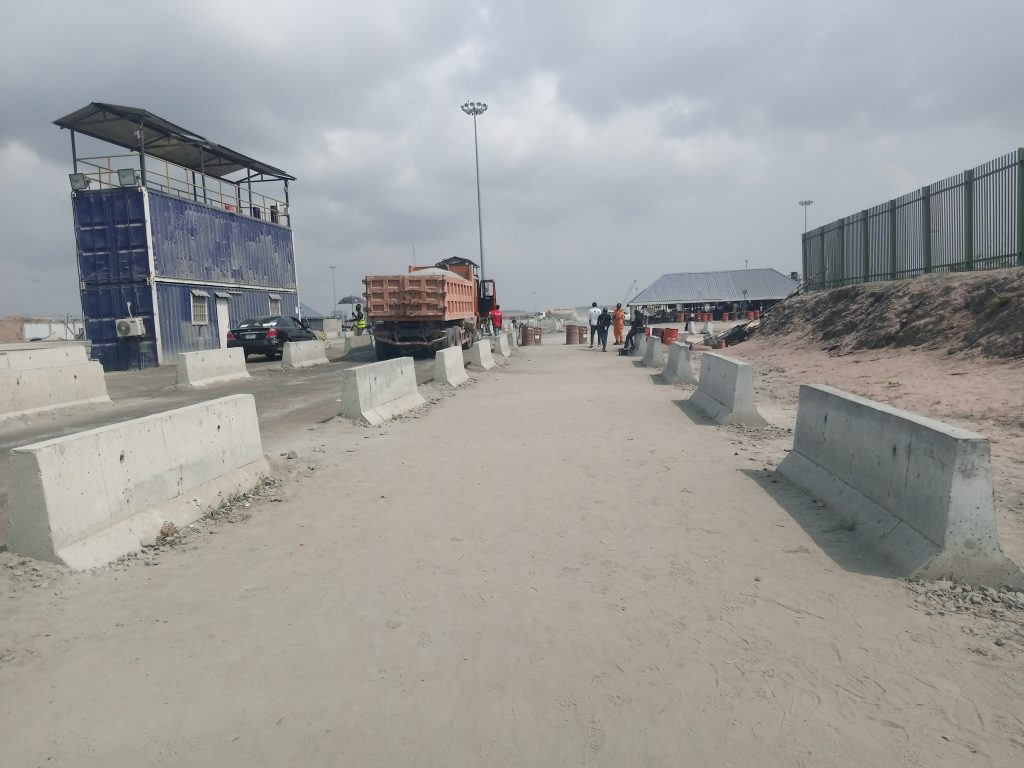
Lekki has been without electricity since work commenced on Dangote Refinery. In an interview with TVC, a resident said the town’s share of electricity seemed to have been given to the refinery. According to the man, while Lekki had been in the dark since the arrival of the company, Dangote Refinery had always enjoyed light.
“Before Dangote came here, we used to have light,” Quadri Folake, a provision store owner in Lekki, told FIJ. “I spend N45,000 on fuel in my shop every month. At the end of the day, there’s no gain.”
Residents flood road-side shops to charge phones and other electrical appliances. According to Mohammed Fatai, a commercial motorcyclist in the town, it costs either N100 or N150 to charge a mobile phone.
Adeyemi Peter, however, said that the benefits of the sea port surpassed the downsides.
FIJ had attempted to have a conversation with the king over allegations of complicity in the injustice meted to residents by Dangote Group. So Peter, being the secretary to Oba Olumuyiwa Ogunbekun, the Onilekki, spoke on behalf of the king, who was unavailable.
“Fishes are no longer as abundant, but the fishermen have also increased the price,” he said. “Moreover, they now have more people to sell whatever they get to.”
He also said efforts were being put in place to ensure that Dangote Group delivered its corporate social responsibilities to the community.
“Dangote destroyed everything,” a fisherman told me.”We’ve communicated our pains to the king to no avail. We don’t know what is between him and Dangote.”
FIJ made several calls to the phone numbers listed on the official website of Dangote Refinery for comments, but they were unanswered.




